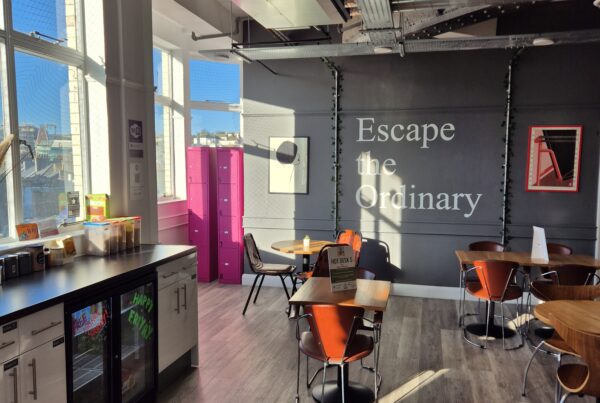Co-working or remote? which is best for start ups?
With the outbreak of the COVID-19 virus and the subsequent quarantine period, companies working from offices were forced to adopt remote working overnight. Even though some start-ups didn’t feel any difference as they had already adopted a remote-first culture prior to the lockdown, for a predominant majority of companies adopting remote work will be a bitter pill to swallow.
Remote working is way more than just leaving the office and working from home! For managers, the remote environment will require different skills and better communication – both spoken and written.
It goes without saying that the location you choose to work in will have a direct impact on your work. This is particularly true if you are a startup company or freelancer and don’t currently have a company office to commute to each day.
Remote working
The choice between a coworking space or remote working space is something you should be informed of before taking the leap into remote work full time. Working remotely from home has plenty of positives. An example of this is it’s a good option for people that want their work-life and day-to-day life to be integrated. It is also nearly impossible to get a work-life divide if you are remote working from home. Dissimilarly to remote working, coworking spaces are a solid viable option for offering work and home divide that you need to make the most of your respective responsibilities.
Right now, most of us are working from home to stay safe from the spread of the virus, but before the coronavirus, there were many other reasons to work remotely. For those start-ups that are unsure to implement remote working, there might still be doubts as to how it can contribute to a company’s growth. Some of the pros of working remotely would include a reduced cost of operation. Remote work saves money in many ways, the biggest impact many companies have found to help reduce the cost of operation is through the elimination of office space. Fewer workers on-site means less space, less cost!
Companies that operate remotely do not have to pay for office spaces since the whole concept of remote working is to allow employees to do their job from any location.
Pros & Cons of Remote working
For many start-ups weighing up the pros and cons, it’s essential to understand what your business needs, for example, if you need to speak in person on a daily basis and maintain strong communication with your team, then remote working may not be the best option…
About 38% of telecommuters reported a lack of information from employers or managers as one of the major struggles of remote work. Advanced communication tools cannot replace the need for face-to-face interaction when it comes to certain issues relating to work. That is why companies operating remotely organize team-building activities and different events to maintain company culture, look out for employee wellbeing, and help build stronger relationships between team members.
A further 19% of remote workers have indicated that they struggle with loneliness. That comes as no surprise since working from home means there is no interaction between colleagues, other than zoom meetings or telephone calls. Distractions at Home and not being able to unplug after work is a largely reported negative about remote working. This can have a detrimental impact on employee wellbeing and mental health, not being able to have the divide between work and personal life can be difficult. Whilst many have adjusted throughout the pandemic, many are still struggling and rethinking careers as they want more social roles.
However, the pros could make you think twice… some examples of this is;
– Flexibility, less people taking half days/ sick days to get to doctors appointments, as it takes the commute out of many peoples weeks,
-Cost saving, many businesses have found working with a remote team can save a lot of money, as there is no ned to pay for office space. It is also cost effect for employees, not having to pay for transport.
– Increased productivity, many people feel as though they have more time in the day, not having to commute in to work, they can get more done and be more proactive towards targets/ projects.
Co-Working
By now, most professionals are familiar with the concept of coworking. They’ve either spent time in a coworking space or know someone who has. So, are coworking spaces viewed as positive or negative? What are coworking pros and cons? Distinguishing the different pros and cons will help people become acclimated to coworking, so they know what to expect and what not to expect. Managing these expectations helps hold a better experience for people co-working. Business operators also need to know coworking pros and cons to know what the market needs/ wants and how to manage people’s expectations.
There can be some downfalls to coworking…
The biggest complaint about coworking is “too distracting.” Often, it’s valid due to a lack of though put into the design. You can’t put 50 people in a space meant to accommodate 30, with phones buzzing, people chatting, and computers chiming. Mitigating this issue is as easy as providing the right amount of personal space and instituting etiquette rules. Even creative design elements can minimise distraction levels. It’s all about setting a peaceful, focused mood. It’s crucial to understand the con’s before implementing this concept, so a strategic plan can be put in place. No matter the situation, it’s important to stress the pro’s, such as…
-Flexibility is the biggest benefit of a coworking space. Many of the biggest benefits of coworking spaces stem from adaptability on the part of patrons and owners. Flexibility in working weeks are a rising trend, this could be working from home 2 days a week and the other 3 in the office, or remote working with regular meetings in a coworking space. There are many different variations of flexible working, which can be customised to each business.
– Coworking spaces aren’t confined to static layouts. This allows them to adapt to the needs of each business. Operators can push desks together or open rooms to groups, or space people further apart during slower periods to give them more privacy, meeting the needs of all different teams. This gives rooms for creativity and its a great way to build a positive company culture.
– There’s also a creative side to consider. Coworking encourages collaboration, which lends itself to productivity and success. It naturally creates a sense of community and inclusion within a social working environment. Professionals from all different walks of life can easily meet and chat. Vendors and customers have a neutral place to discuss business. It’s a major benefit with rippling positives.
The many benefits of coworking are apparent for today’s remote and mobile workforce, coming out of the pandemic. Coworking fills a gap left by the phase-out of traditional offices and the demand for a flexible, workplace-like environment.
So, what’s best for your start-up?
Although opting for a coworking space will have more costs involved than remote working, the huge variety in coworking spaces on offer means that whatever your budget, timetable, and location preferences, you should always be able to find an option that works for you.
Ultimately, it is important to have a specific location for working. A coworking space is ideal as it will give you a base to work at away from the distractions and isolation of home, but you still have the option to work remotely if you need to!





